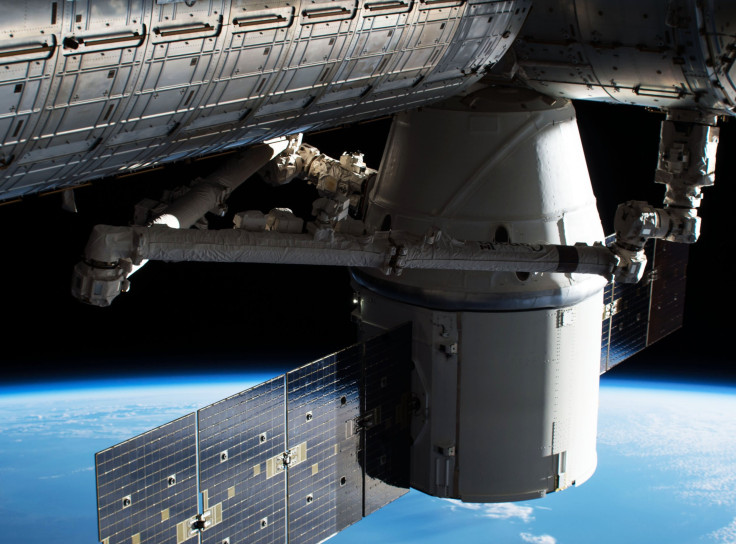SpaceX Delays Dragon Launch For NASA Resupply Mission To ISS

KEY POINTS
- SpaceX delayed a resupply mission for NASA
- CRS-20 will deliver supplies and experiments to the ISS
- The launch was canceled due to a technical issue
NASA has confirmed that a resupply mission to the International Space Station (ISS) through SpaceX’s Dragon spacecraft has been delayed. According to the agency, SpaceX decided to postpone the launch of the mission due to a technical issue with its Falcon 9 rocket.
The upcoming mission, known as CRS-20, will serve as SpaceX’s 20th resupply flight to the ISS. It is part of the company’s partnership with NASA through the latter’s Commercial Resupply Services program.
As a resupply mission, CRS-20 will deliver a variety of equipment and scientific experiments to the giant orbiting space station. In total, SpaceX’s Dragon spacecraft will carry over 2,500 kilograms of cargo, which contains the food and other supplies for the current crew members of the ISS.
Aside from important supplies, the mission will also deliver new scientific experiments to the station. According to NASA, some of these include research on water droplet formation and particle foam manufacturing.
CRS-20 was supposed to take place on March 2. However, after conducting a standard safety check on Falcon 9, which will serve as the mission’s launch vehicle, SpaceX decided to postpone the launch to March 6 at 11:50 p.m. EST. As confirmed by NASA, SpaceX discovered that a valve on the rocket’s second stage engine was not functioning properly.
“During standard preflight inspections, SpaceX identified a valve motor on the second stage engine behaving not as expected and determined the safest and most expedient path to launch is to utilize the next second stage in line that was already at the Cape and ready for flight,” NASA stated.
This isn’t the first time that SpaceX had to delay a launch for NASA. Probably the most significant incident is SpaceX had to push back its commercial crew launch service for the agency after a disastrous accident destroyed its spacecraft.
The incident occurred on April 20 last year during a static fire test for the Crew Dragon, which was designed to ferry astronauts to and from the ISS. Unfortunately, a minor leak in the spacecraft’s helium line caused it to explode during an unmanned test. Although no one was hurt, the severity of the incident forced SpaceX to delay its commercial crew flight service for NASA.
© Copyright IBTimes 2024. All rights reserved.





















